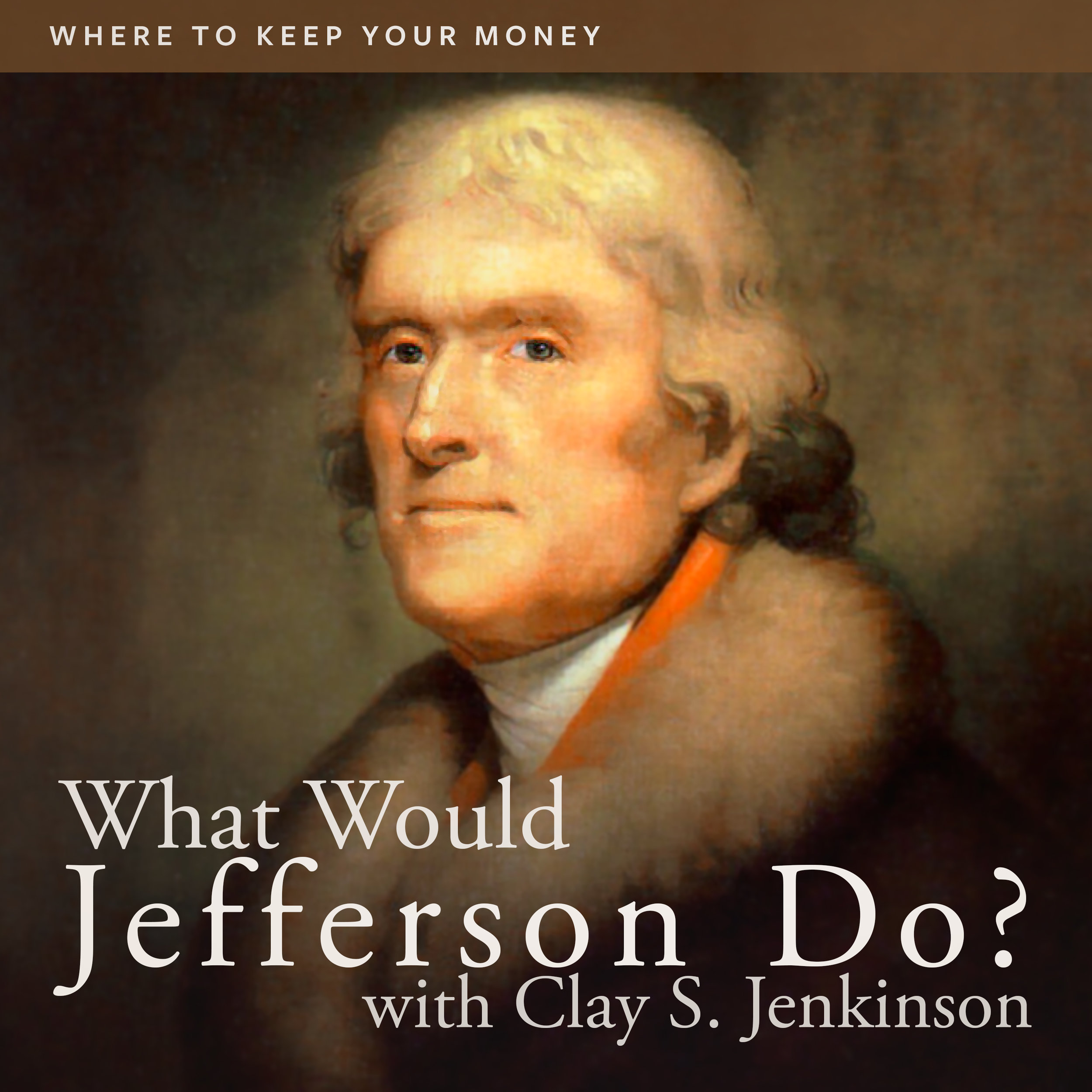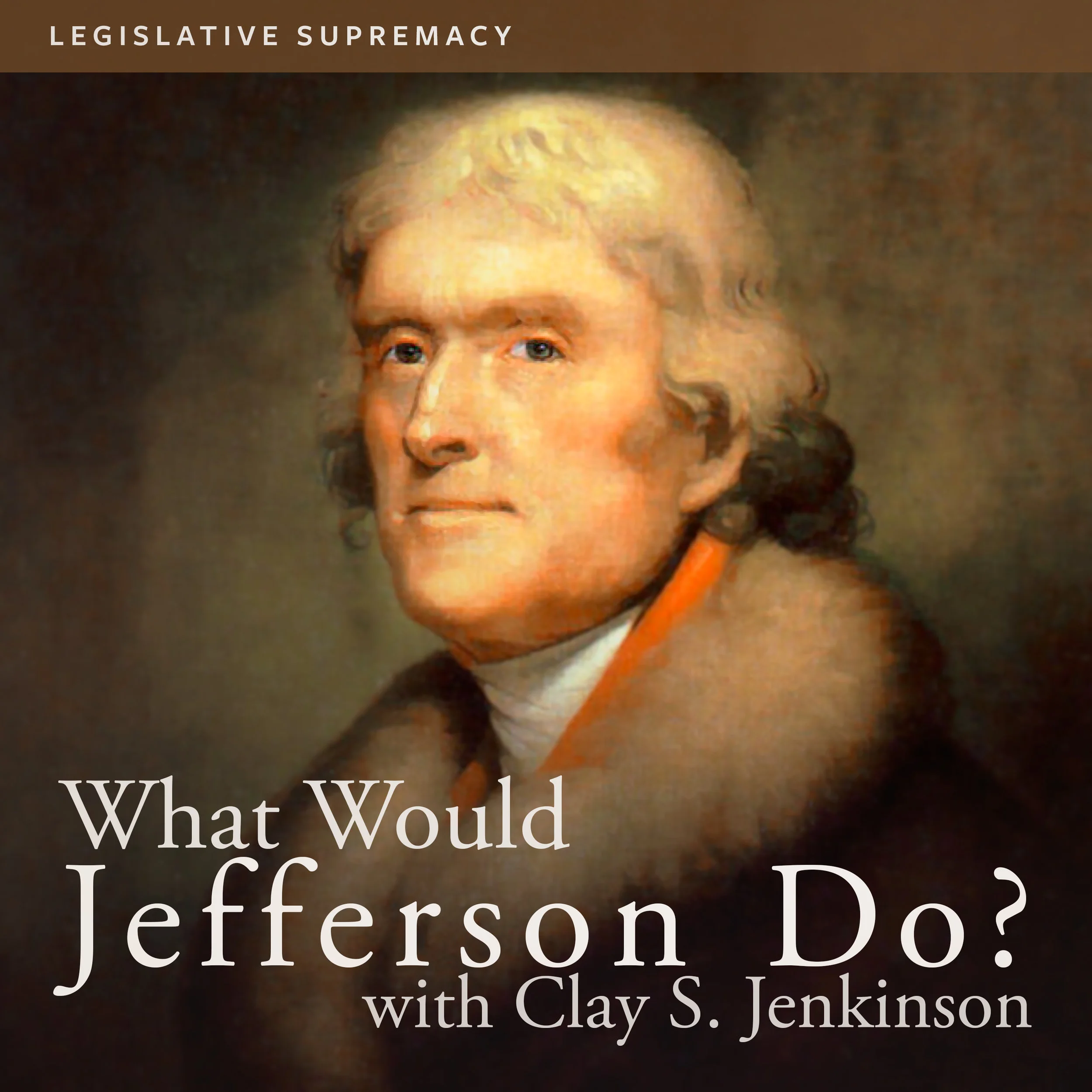The most amazing thing about Thomas Jefferson is that he embodies both the soaring aspirations of the American Dream and the incomprehensible paradoxes of our identity. Nobody ever pitched our national experiment so high.
Social Class
#1233 Neither Wolf Nor Dog
Joining us this week are two special guests: the independent filmmaker Steven Lewis Simpson and author Kent Nerburn. We talk about Simpson's recent film adaptation of Nerburn’s book, Neither Wolf nor Dog, and about Jefferson’s long shadow when it comes to the United States' conduct regarding American Indians.
Countdown to the Eclipse
Where to Keep Your Money
#1232 Listener Questions
This week, we discuss listener questions about architecture, Sally Hemings, revolutionary war, Jefferson as a scientist, recommended books and how Clay's life has been affected by performing as Thomas Jefferson.
"What I discovered was that Jefferson embodies — in many respects, not in all of them — the world that I want to live in. I want to live in Thomas Jefferson's America." — Clay
Our Gardens
The Joys of Gardening
#1231 Jefferson's Garden
We speak with Pat Brodowski, head gardener at Jefferson’s Monticello. Pat shares her knowledge about how and why Jefferson grew the plants he did, the experimental nature of the household gardens and what they are doing to maintain the gardens during our time. It’s a fascinating conversation which provides some real insight on Jefferson the gardener.
Good News for America
Appointing Judges
#1230 Judgment
"The constitution ... is a mere thing of wax in the hands of the judiciary, which they may twist, and shape into any form they please." — Thomas Jefferson to Spencer Roane, 1819
Thomas Jefferson had a unique and slightly odd view of the proper place of the judicial branch in America. He thought of judicial independence as both a strength and a weakness of our system: you want judges that are independent of popular factionalism but you want them to be accountable to the sovereign, to the American people. Jefferson, as portrayed by Clay S. Jenkinson, discusses his concept of judicial balance, his lifelong displeasure with the Supreme Court, and some of the changes that he thinks should be made. He said of life-tenured judges, 'Few die and none resign.'
A Cul-de-Sac and a Bucket of Piss
Vice President Aaron Burr
#1229 Vice President
"The Vice Presidency turned out to be just what Jefferson had predicted: 'philosophic evenings in winter' and summers at his beloved Monticello." — Clay
This week on the Thomas Jefferson Hour, we return to "Jefferson 101", our biographical series. Reluctantly, Jefferson came out of retirement to serve as vice president for four years under his old friend John Adams. They were of different political persuasions and they, in a sense, became the heads of different political parties. Adams & Jefferson were friends when Jefferson's vice presidency began but there was a long period afterwards when they couldn't really abide each other; in the end, in 1812, their friendship was restored and it became one of the great reconciliations of American history. During his vice presidency, Jefferson contributed a rule book to the Senate: A Manual of Parliamentary Practice for the Use of the Senate of the United States.
Jefferson meant it: He preferred the happiness of Monticello to the burdens of power — but he loved this country more than he loved his own happiness.
The Most Jeffersonian Thing in America
Family in the White House
#1228 Budgets
"Jefferson regarded the national debt as a national disgrace." Clay
This week, President Jefferson (as portrayed by humanities scholar Clay S. Jenkinson) explains his reasoning behind his federal budget and why he felt it was essential to pay down the national debt that he inherited. We also learn about some of the people who helped Jefferson develop the budget, including Secretary of the Treasury Albert Gallatin.
Jefferson dedicated his administration to reducing the national debt as severely as possible. As always, there are parallels between Jefferson's time and ours. He wanted to cut taxes and the size of the federal government, but he also wanted to cut the size of the Army and Navy; you don't hear that kind of talk much in our time. In this case, Jefferson was an idealogue about fiscal responsibility.
And So Once More to the Breach
The Lewis & Clark trail begins at Monticello and ends at the mouth of the Columbia. But the best part of the whole transcontinental trail lies between the confluence of the Judith and Missouri Rivers in eastern Montana, and Orofino, Idaho, on the Clearwater River on the other side of the Bitterroot Mountains.
























